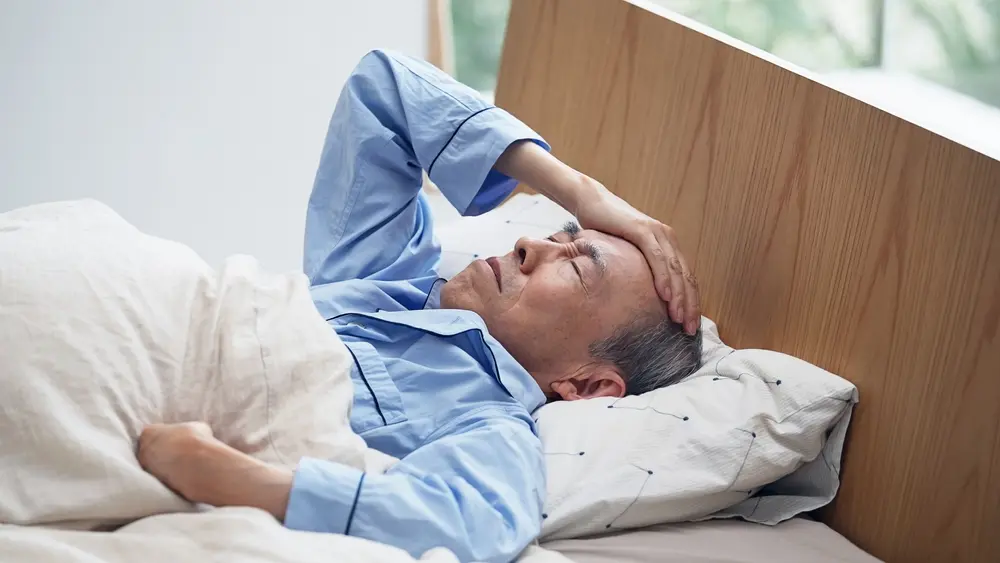
Most people who struggle with mental health disorders have sleep troubles, and vice versa. This is because the two are closely connected, oftentimes with one leading to the other. Studies have linked sleep disorders like obstructive sleep apnea, restless legs, and narcolepsy to depression, anxiety, bipolar and other mental health disorders. At the same time, these mental health issues may also cause poor sleep.
Narcolepsy is a chronic sleep disorder with no known cause. It affects the brain's ability to control sleep-wake cycles, resulting in excessive daytime sleepiness. Under normal circumstances, the sleep-wake cycle includes various stages that gradually transition from light sleep to deep sleep and finally to REM (Rapid Eye Movement) sleep.
REM sleep is essential for dreaming and helps rejuvenate your mind and body. However, if you have narcolepsy, this process is disrupted. Instead of following the typical progression through the sleep stages, you quickly enter REM sleep shortly after falling asleep, skipping the initial stages.
You’ll also experience fleeting urges to sleep. When the urge becomes overwhelming, you’ll fall asleep for a few seconds to several minutes – though sometimes, you may remain asleep for an hour or longer.
Here are some common narcolepsy symptoms:

Narcolepsy often co-occurs with mental health issues like depression and anxiety.
According to a survey, about 57% of narcolepsy patients said they’re depressed. In contrast, only about 4.7% of adults in the US say they have regular feelings of depression. At the same time, about 35% of people with narcolepsy had anxiety disorders like social phobias and panic attacks. That compares to about 18% of the general population.
Scientists believe that there’s a link between attention deficit hyperactivity disorder and narcolepsy. Although the two medical conditions seem to be on opposite ends because of how they present themselves, a study found that children with narcolepsy are more likely to present ADHA symptoms than those with regular sleep patterns.
People with narcolepsy are also at a higher risk for developing eating disorders, especially binge eating and abnormal food cravings. In one study, about a quarter of those with narcolepsy met the criteria for having an eating disorder.
Narcolepsy and schizophrenia share some similar symptoms, such as hallucinations. Researchers have looked into cases where individuals show signs of both disorders. These issues often begin in childhood or the teenage years. However, being diagnosed with both schizophrenia and narcolepsy is relatively rare.
The unpredictable nature of narcolepsy often makes mental health issues like depression and anxiety even harder to manage. For example:
Many people are likely to isolate themselves, due to the worry or fear of these unpredictable symptoms. You might avoid gatherings, work events, or outings with friends to prevent potential embarrassment. But isolation isn’t good for your mental health. In fact, according to studies, feelings of isolation are linked to suicidal thoughts, less restful sleep, more stress, and a decrease in your ability to regulate eating habits.

The unpredictable nature of this sleep disorder can also chip away at your self-esteem. The sudden symptoms might make you feel inadequate – especially since you struggle to maintain a routine or keep up with responsibilities. Low self-esteem is known to cause persistent feelings of sadness, depression, anger, anxiety, guilt, or shame.
Sadly, mental issues like anxiety or depression make narcolepsy symptoms worse. High-stress levels can disrupt your sleep patterns, leading to more daytime sleepiness and sleep attacks. It’s a vicious cycle where poor sleep increases emotional distress, and emotional distress worsens sleep quality. The more stressed and anxious you feel, the harder it becomes to get restorative sleep, which is crucial for managing narcolepsy.
Both sleep and mental health can have a major impact on quality of life, so it’s crucial to get proper care that involves working with a trained health professional. Your doctor or psychiatrist will assess the benefits and risks of different types of treatments and offer customized care even in situations with multiple co-occurring mental or physical issues.
One of the go-to treatments for narcolepsy is sodium oxybate. This prescription drug is given for narcolepsy with cataplexy and excessive daytime sleepiness. It helps regulate your sleep patterns so you get better rest at night and feel more awake during the day.
Sodium oxybate targets specific brain chemicals that keep your sleep-wake cycles more stable. Other medications, like antidepressants and stimulants, help to improve your mood and sleep, and can boost your energy and alertness.
Beyond medications, your doctor may recommend therapy for both conditions. Behavioral therapies like Cognitive Behavioral Therapy (CBT) can help reframe your thinking. Your therapist will use different types of CBT for specific problems like bipolar disorder, anxiety, and depression.
They may also use CBT for insomnia (CBT-I) to help reduce sleep problems. A large clinical research study showed that CBT-I can lessen the symptoms of many mental health conditions.
You may also need to make simple lifestyle changes to manage the conditions. Try to stick to a regular sleep schedule, get some light exercise, and practice good sleep habits. These can all help you feel better during the day. Relaxation techniques like meditation or yoga are great for reducing stress and boosting your immune system.
Exciting things are happening in the world of narcolepsy research. Plenty of clinical trials are looking into new treatments. For example, Science 37 is working on some cool studies to discover new ways to tackle narcolepsy. These trials aim to find more effective treatments that can offer real relief and improve the quality of life for people with narcolepsy.


